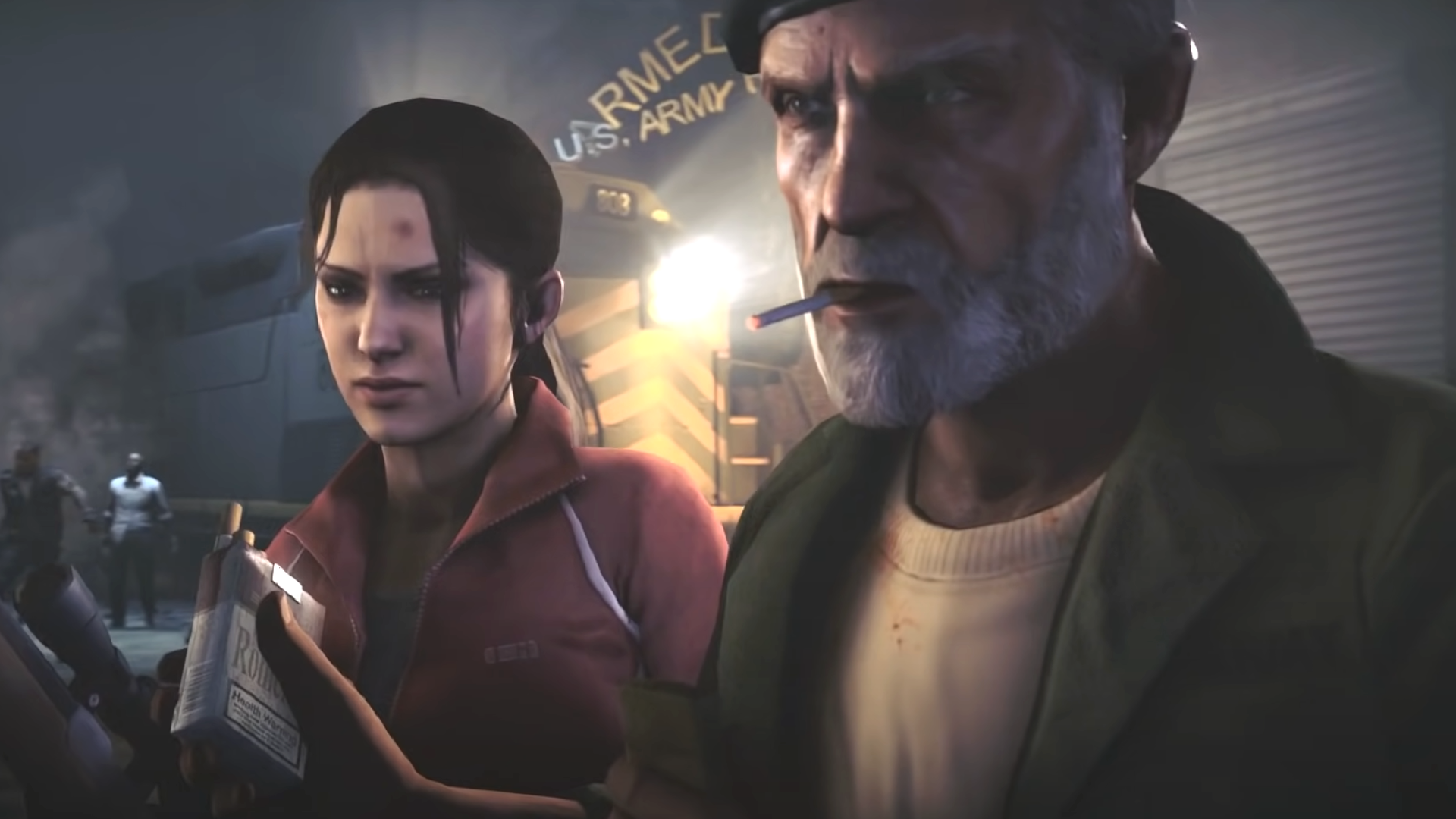Left 4 Dead's first internal playtest was so disastrous, Gabe Newell asked its lead: 'Why don't I just play Counter-Strike instead?' then 'made me watch him play it'
The game was originally built around four vs. four PvP, but it was "a mess."

Chet Faliszek, the lead on Left 4 Dead—who is now making his own retro sci-fi version called The Anacrusis—says that Gabe Newell had some pretty strong opinions on the game during its troubled development.
That's according to an interview by GameDeveloper, which outlines the horde shooter's rocky start. Faliszek recalls stumbling into his position as project lead almost by accident due to Valve's funky organisational structure where people can drift towards projects they think are interesting. He says an engineer responded to Newell with a casual: "'Well, you should just talk to Chet, Chet's kind of the person.' Like, no one ever told me I'm running [the game]!"
The only problem is, L4D's early prototypes weren't working. The game was originally imagined as an asymmetrical game with a PvP focus—four gun-toting survivors against four special infected. That would later return as the game's Versus mode, where the zombies were far more fragile. Even so, the original playtest was a disaster.
Firstly, the matchmaking system didn't work, prompting a very blunt response from Newell. "Gabe just asked me very seriously, 'why don't I just play Counter-Strike instead? That's working.' And I thought he was joking. Like, ha, ha, ha. But then he made me watch him play it, he made me sit in his office and watch and play it."
Faliszek does emphasise that it was a pretty good object lesson, rather than a weird flex. "[Newell] says, 'No, seriously, this is every single one of your customers, asking this question right now. What do you tell them?' Like, fuck, good question."
The other problem was that the concept just didn't really work—a common problem in these asymmetrical PvP games. It's hard enough to balance classes when both teams have access to the same ones, let alone when they're playing with an entirely different set of abilities. "One really good player on the infected side could ruin the game for the other team … I thought they would play better with [Newell], and they didn't. It was a mess."
The experience caused Faliszek to rethink the game's whole structure, though the shift itself was gradual. He calls the phrase "lone wolves die" the "knife that everything in [the game] was cut on." There was apparently some resistance to this idea, though, especially when it came to how the special infected could screw you over if they snagged you on your lonesome.
The biggest gaming news, reviews and hardware deals
Keep up to date with the most important stories and the best deals, as picked by the PC Gamer team.
"I remember at one point an animator at Valve telling me that we would never ship the Hunter," a special infected that can pin you down and tear you to shreds. "Nobody will ever put up with something that can just jump on them and take them down, and you have no way to get it off. 'You need to have a quick time event! You need to do something.' And I'm like, 'Nope! Nope! we're gonna ship that! I'll bet you money.'"
Eventually, the Left 4 Dead we know and love started to take its full shape—personally, I'd be curious to play something along the lines of that original prototype. But only curious, not enthusiastic.
That's not to say the concept itself was flawed. Dead by Daylight has proved you can pull off horror PvP very well—though it simplifies things by having one monster versus a group of fragile survivors. I can't imagine the design nightmare of adjusting for four super-zombie players.
The shift away from PvP turned out to be a smart move, as while I've definitely enjoyed L4D's Versus mode in the past, Faliszek says: "I knew the stats of how Left 4 Dead was played, and we saw that people predominantly played co-op" and I can't say I'm surprised. Versus was fun, but it was also chaotic and very swingy. You were either steamrolling the infected enemy team or dead as a doornail with very little in between. Jolly co-operation in the zombie apocalypse was the right call.

Harvey's history with games started when he first begged his parents for a World of Warcraft subscription aged 12, though he's since been cursed with Final Fantasy 14-brain and a huge crush on G'raha Tia. He made his start as a freelancer, writing for websites like Techradar, The Escapist, Dicebreaker, The Gamer, Into the Spine—and of course, PC Gamer. He'll sink his teeth into anything that looks interesting, though he has a soft spot for RPGs, soulslikes, roguelikes, deckbuilders, MMOs, and weird indie titles. He also plays a shelf load of TTRPGs in his offline time. Don't ask him what his favourite system is, he has too many.

